Into the Presence of Still Water
In this lyrical reflection on a morning canoe journey through Cocha Cashu, a remote lake in Peru’s Manu National Park, guest author Jessica Groenendijk vividly captures the awakening rainforest
Words and images: Jessica Groenendijk
As I follow the finger of light from my torch, the gravelly roars of howler monkeys rise to an almost supernatural crescendo before subsiding into a series of sawing coughs. The root-knotted trail guides me through the trees, past the tents of other researchers, and into the clearing. I cross it and head to the dock.
At the lake, the new day is well under way. Dawn happens so modestly here; it never fails to catch me by surprise. I imagine it as light, not falling from above and cascading over the rim of trees into the bowl that is the lake, but rising like sap from below, seeping into corners, filtering through shadows and dispelling the dark. That’s a rainforest dawn. It unfolds in a symphony of greys, and before you know it, it’s over.
The canoe, hollowed out of a single tree trunk, lies alongside the dock. I lower my camera bag and binoculars onto the bottom, untie the painter, and fold myself cross-legged at the stern. A nudge with my paddle sends me gliding through the water. The bow turns away from the shore and towards the heart of the lake. Into solitude.
Cocha Cashu is one of about two dozen oxbow lakes that flank the meandering Manu River in Peru’s flagship Manu National Park. Shaped like horseshoes, oxbows are formed—abandoned, really—as the river pinches off its loops over time to follow a shorter, straighter course. When looking over the lowland rainforest from a plane, it’s the aquatic habitats sculpting the landscape that hold your gaze. At that altitude, the river is a coiling cappuccino ribbon, and its oxbows are enamelled island charms surrounded by a lumpy ocean of green.
Oxbows are small lakes with little or no connection to the parent river. Some become impenetrable swamps, while others evolve into oases for wildlife. Cocha Cashu is one such haven. It is also the home of tropical ecology researchers who come from all corners of the globe to work at the Cocha Cashu Biological Station.
My crudely carved paddle enters the water with a “pht”. Soon, I fall into a rhythm, five strokes to starboard, five to port. With each firm push, twin whirlpools hiss from the blade’s edges. Along the shore, pale trunks of trees are reflected in the quiet, silvered surface. Howlers on one side of the oxbow begin their unearthly chorus, and a group on the opposite bank answers. Far off, I hear the forlorn hiccupping of dusky titi monkeys, sounding, to a mother, like crying babies. I picture them in a dense thicket, perched on a branch, tails entwined.
The sun lifts above the canopy and light gilds the trees, turning leaves a luminous green. The forest is quickening; shy stirrings on the shoreline become an urgent scramble for food and mates. A red-eyed, mohawk-feathered hoatzin shuffles in the branches, wheezing softly, and a cocoi heron stands frozen at the edge of a patch of floating weeds. I touch the water with my paddle and the canoe whispers forward. The heron ignores me. Its attention is riveted by something near its feet—an ill-fated fish.
Then I hear them. I hold my breath. Yes, there it is again—a sharp exhalation. I know what to look for and search the water’s surface ahead. In the shallows to the left, I see it distort and shimmer. A splash, and a wave bulges towards me; they’re chasing fish. A small, sleek head appears. No, two. Wait… there are five! Five giant otters. And two are cubs; I can tell by the way they swim. I reach for my camera and wait. The family soon spots the boat and heads directly towards me. As the otters come closer, they zigzag, inspecting me from all angles. One exhales explosively and ducks under. Another propels its upper body straight out of the water—periscopes—and I quickly take a photo of its throat pattern. Then I gently paddle backwards, letting the otters know I mean no harm. The vital business of hunting soon distracts them.
Cocha Cashu is pulsing with life. Cries of every description now ring across the lake. Sounds travel with startling clarity, amplifying as they ricochet off the forest wall on all sides. Birds dominate by sheer numbers. A muscovy duck whump, whump, whumps overhead, its flight laboured. Nearby, a kingfisher challenges me—to do what?—with its strident chatter, while the guttural croak of a cormorant triggers from me a muttered “Excuse me?”. On my right, I hear the rattle of a piping guan’s wing quills as it flies from one tree to another. And far away, barely audible, comes the ponderous bass “Hum, hm, hmmmm… UH!” of a razor-billed curassow, like a wild-haired matron clearing her throat for a stern speech.
One of my favourite birds is the jacana, a fussy, leggy wader with outsized toes. Whenever a tree groans and thuds to the ground, or I thoughtlessly let my paddle bang against the side of the canoe, as I do now, a nearby jacana invariably takes flight and complains with a series of irascible yaps.
I register all these calls without observing their sources because I have eyes only for a small side-necked turtle. I heard it gasp in fright when it emerged from the tannin depths next to the canoe. As I turned to look, it vanished, leaving a swirl in its wake. I let the boat drift against an overhanging shrub and wait. Five minutes later, I am rewarded: a small fumbling at the edge of my vision. The turtle is hauling itself up on a partially submerged branch about 10 metres away, its dark shell glistening. Now, too, I hear a young black caiman croon. Another answers, and I know their watchful mother will be nearby. I slowly scan the dappled vegetation at the water’s edge. There she is. Only her head is visible. A large, implacable eye, flecked with gold, monitors my every move.
It is mid-morning, and the air above the lake rustles with gauzy insects. Thousands of dainty blue damselflies hover low, and blood-red dragonflies dart aggressively amongst them. A breeze makes the water surface shiver, reminding me of a horse twitching its withers to shrug off a fly. Near the bow of the canoe, rubber-lipped fish with grey snouts mouth at bubbles and scum and tiny matter. When alarmed by an imagined threat, they plunge downwards in unison, churning the leaf litter.
The first rush of activity has passed, and as the heat increases, Cocha Cashu’s residents become drowsy and subdued. At midday, they will be stunned into silence. Later, as the sun’s grip eases, they will rouse once again to feed quietly, play, and slowly make their way to places of rest and safety to await the night.
My stomach growls. It’s time for this lake visitor to head back for breakfast.
As I turn, my paddle dips into a large clump of fat, squirming tadpoles. They fan out, bobbling the water’s surface. Together, they are a black, shape-shifting beast. Alone, they are vulnerable morsels. I float into a pool of perfume so potent I wonder that it isn’t visible, like morning mist or a mirage, or palpable, like waves of heat. Indeed, such a heady fragrance can only be spilling from something gaudy and glamorous. An orchid, perhaps. But no. It belongs to combretum laxum, a nondescript bush with sprays of small white flowers. I linger in its shade and inhale deeply, wishing I could bottle the scent.
Lulled by the motion of the canoe and my paddle, the second half of a Wendell Berry poem comes to mind:
I come into the peace of wild things
who do not tax their lives with forethought
of grief. I come into the presence of still water.
And I feel above me the day-blind stars
waiting with their light. For a time
I rest in the grace of the world, and am free.
I imagine Cocha Cashu is how many places around the world used to be. How they are meant to be. Full of riotous noise, bursting at the seams with life, where the voices of wild creatures have not been interrupted, overwhelmed, and silenced by our own. Like Berry, I take great comfort in knowing there are still places like Manu’s vibrant island lakes—crescent gems glimmering in a rainforest sea—where one can be in the presence of still water and feel free.





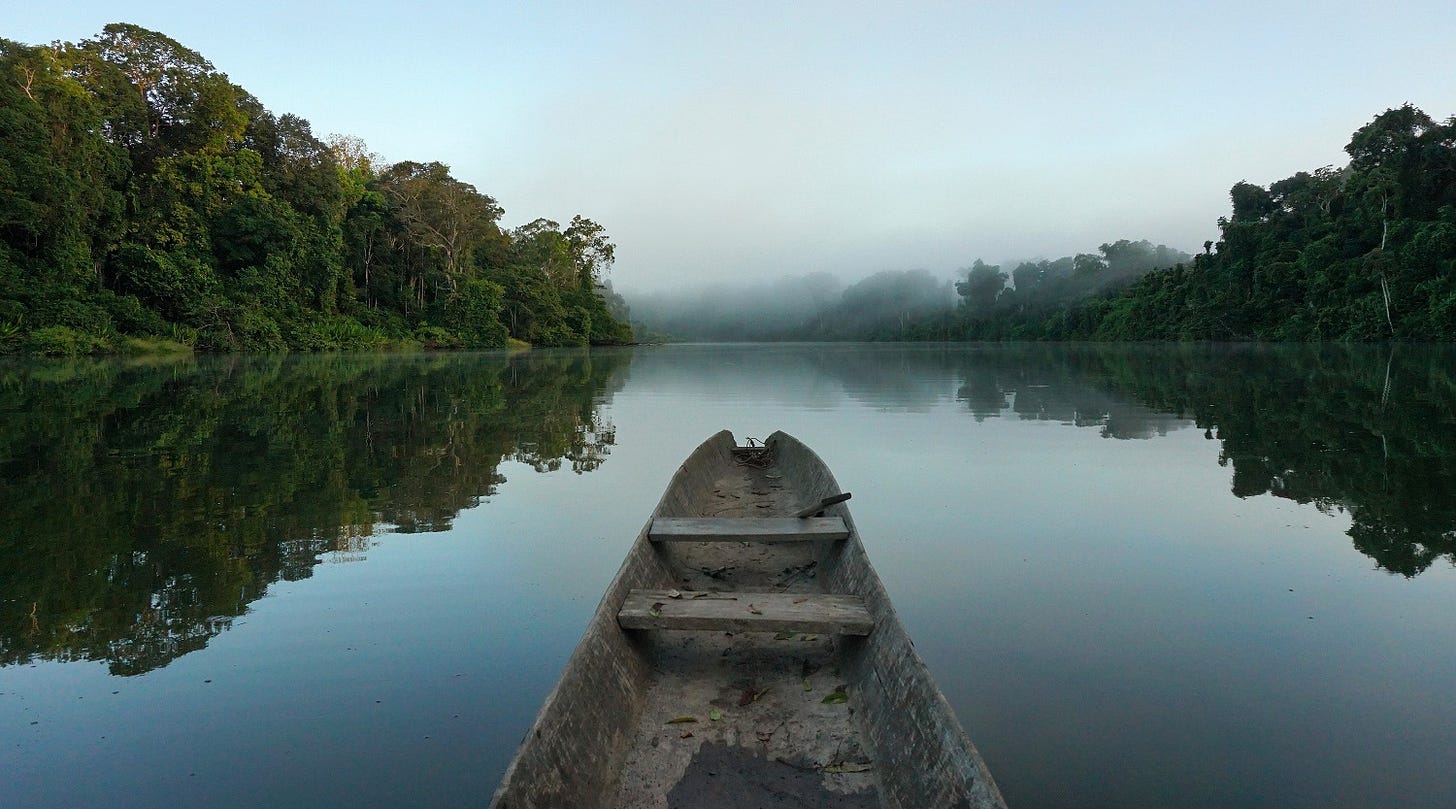
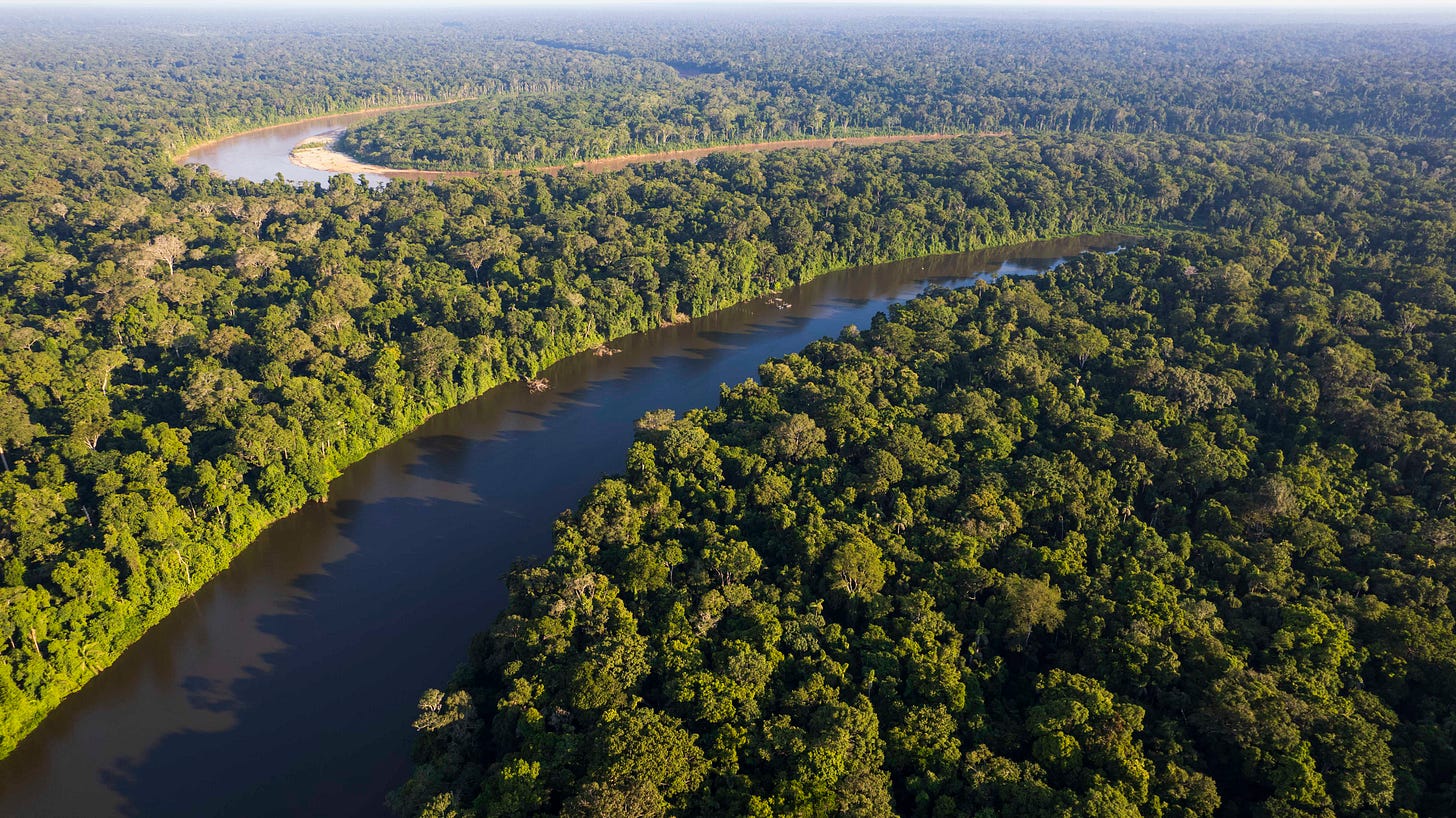
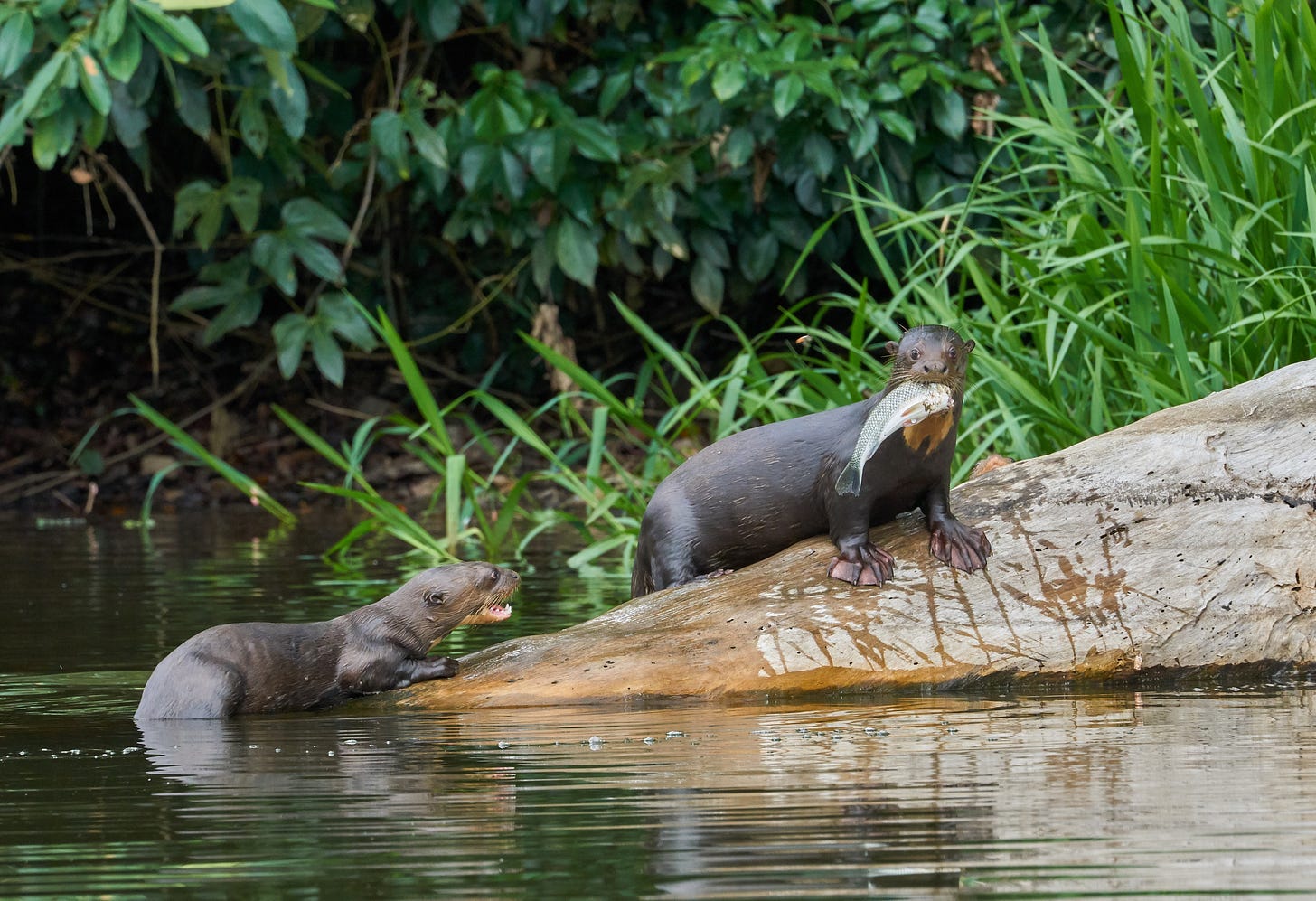

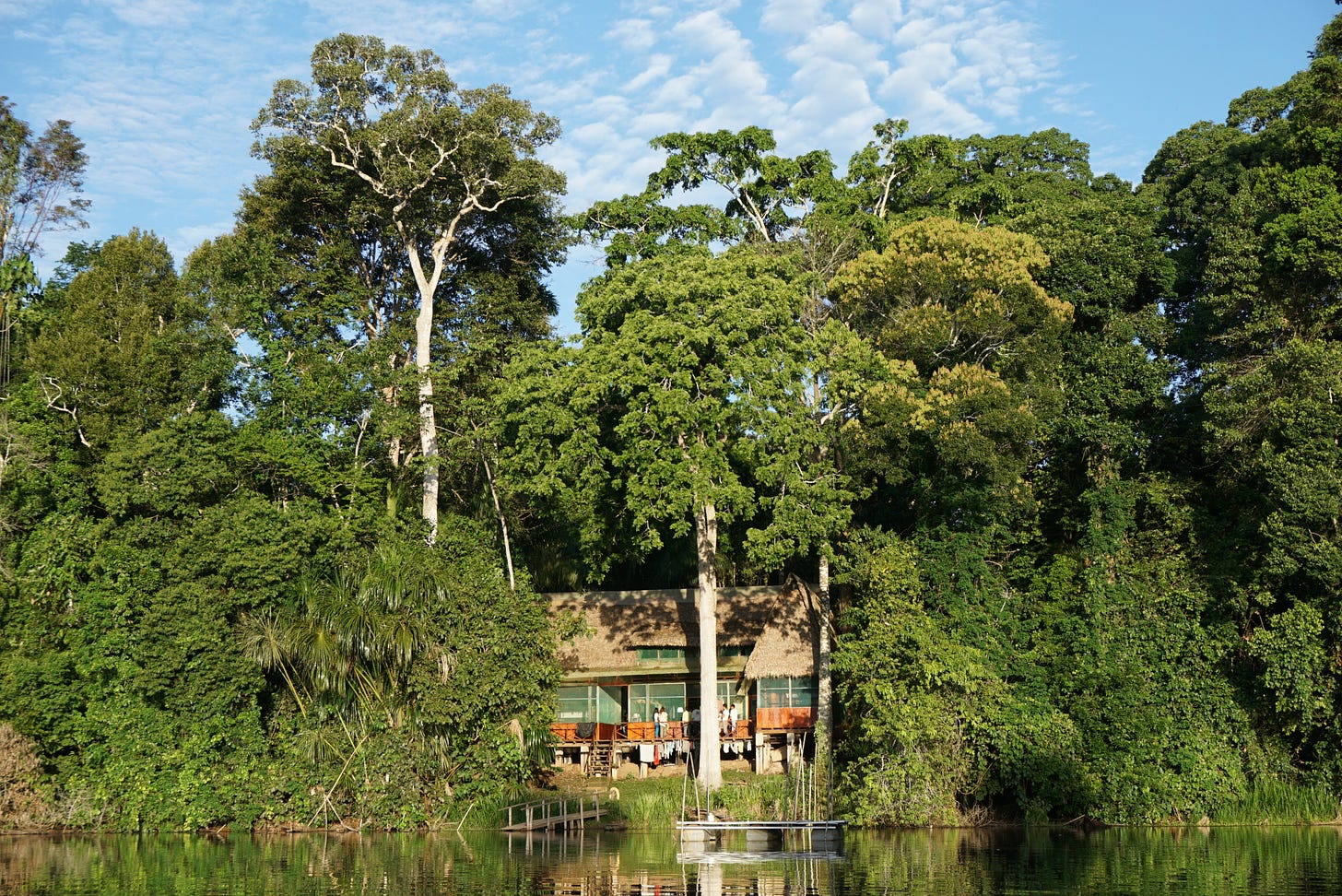
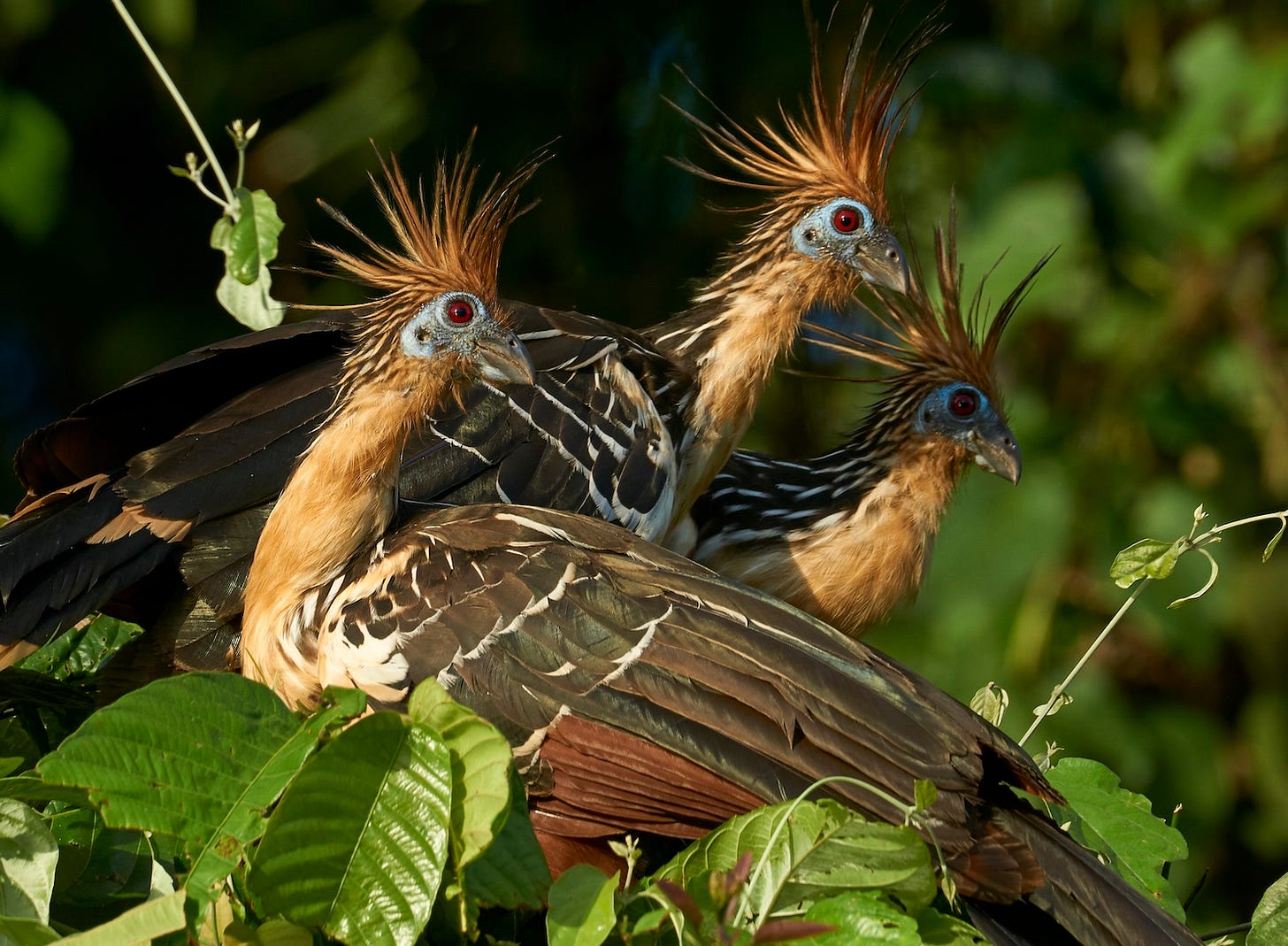

What a treat! I almost felt like I was right there with you. Gorgeous photos too.
Gorgeous words and images!